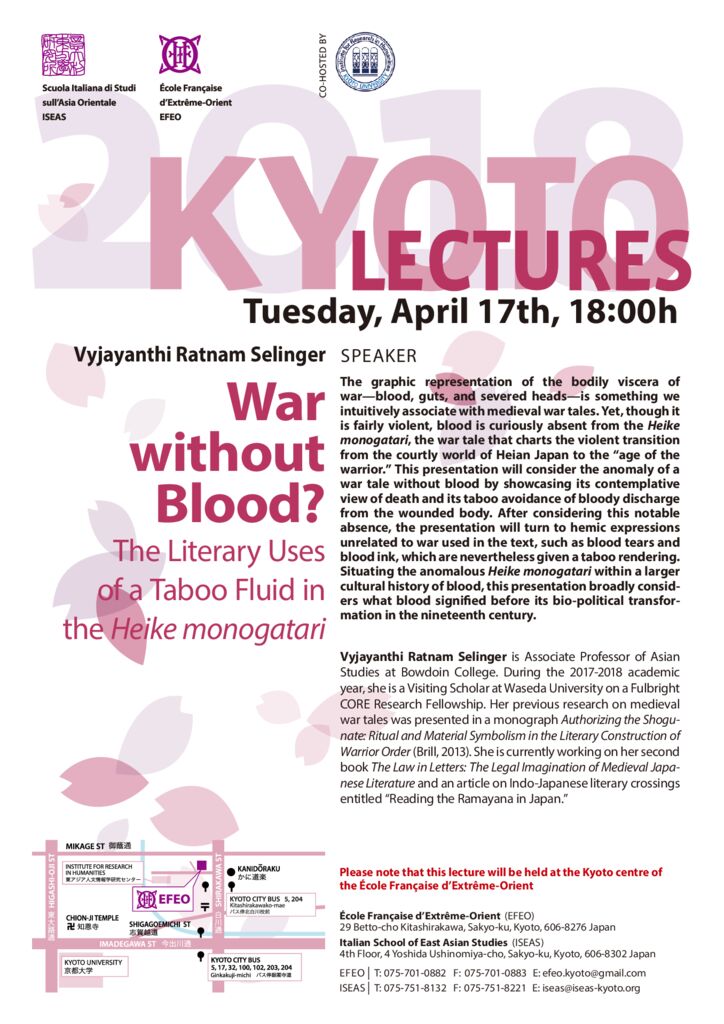The graphic representation of the bodily viscera of war—blood, guts, and severed heads—is something we intuitively associate with medieval war tales. Yet, though it is fairly violent, blood is curiously absent from the Heike monogatari, the war tale that charts the violent transition from the courtly world of Heian Japan to the “age of the warrior.” This presentation will consider the anomaly of a war tale without blood by showcasing its contemplative view of death and its taboo avoidance of bloody discharge from the wounded body. After considering this notable absence, the presentation will turn to hemic expressions unrelated to war used in the text, such as blood tears and blood ink, which are nevertheless given a taboo rendering. Situating the anomalous Heike monogatari within a larger cultural history of blood, this presentation broadly considers what blood signied before its bio-political transformation in the nineteenth century.
Vyjayanthi Ratnam Selinger is Associate Professor of Asian Studies at Bowdoin College. During the 2017-2018 academic year, she is a Visiting Scholar at Waseda University on a Fulbright CORE Research Fellowship. Her previous research on medieval war tales was resented in a monograph Authorizing the Shogunate: Ritual and Material Symbolism in the Literary Construction of Warrior Order (Brill, 2013). She is currently working on her second book The Law in Letters: The Legal Imagination of Medieval Japanese Literature and an article on Indo-Japanese literary crossings entitled “Reading the Ramayana in Japan.”
